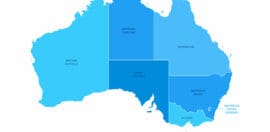Why not for profits are priceless

22 July 2020 at 12:14 pm
Not-for-profit organisations have critical strengths that are important to a healthy, resilient community, writes Fiona Roberts, sharing some of the findings from her PhD which looked at the role NFPs play in building community resilience to disasters.
‘Lions? Isn’t that a footy club?’
Unbelievably for those of us embedded in the sector, not-for-profit organisations (NFPs) are not really understood in the wider community. When disasters happen, NFPs are often overlooked, dismissed, or not even considered. When this happens, everyone loses. Why? Because NFPs have critical strengths that are important to a healthy, resilient community.
NFPs are priceless because…
These NFP strengths were identified as part of my PhD research. One critical strength identified is that not-for-profit organisations have extensive grassroots connections within their local community. They have a depth of local knowledge and understanding of the area. They are the ones who know who has the keys to the showground kitchens or neighbourhood hall. They also know who has a grader and has the skills to navigate the local hills. Frequently they can identify the most vulnerable in their community because they are already helping them.
Lions and Rotary Clubs for example, with missions of “helping their community” and “service above self”, find creative solutions to local problems. Shipping containers are quickly fitted out into Laundries, or Showers or Tool Libraries. Clubs raise funds so Blaze Aid volunteers have wire and fence posts, or a child has a special chair. Men’s Shed offers cooking classes for widowed males. This targeted creativity is not new, these clubs have been responding to community needs since they were established, but as many of their actions are never documented, they are invisible.
Being of the community, often for years, these organisations are the gatekeepers of their communities. NFPs have the trust of their communities. Any directives, if promoted by these NFPs, are promoted by a trusted community voice. People listen because the information is given by someone they know, they trust. At a time of confusion and mixed messaging, Morwell Neighbourhood House organised meetings for experts to answer questions, they organised surveys to identify where people were smoke impacted, and what symptoms they had. They had masks available within days of the smoke engulfing their town. This Neighbourhood House acted quickly, with little funding, because they saw a need and tried to address it. In Victoria alone, there are over 400 Neighbourhood Houses. They focus on facilitating their local community to tackle local needs.
More than a barbie
When you see Lions Club or Rotary Club barbies, you see a cluster of folk cooking. You do not see the vast network of members behind them. These clubs have extensive linkages around the world, reflecting a combined membership of over 2.6 million. In the event of a disaster they have structures and administration in place to quickly access member resources.
Consequently, where a club is impacted and calls for specific resources, other clubs can quickly give them targeted support. And those barbies? They are gathering places for connecting with other community members. Social connections help you feel normal and support mental health.
NFPs contribute what matters most
In an analysis of a range of resilience frameworks, the key “what matters most” factors in building community resilience to disasters included: community engagement, community empowerment to take local action, and a trusted community voice. Given NFP actions often underpin and enable these key factors, NFPs are truly priceless community resources. In this time of ongoing challenges, let’s remember how great our not for profits are. They are probably too busy to document what they do, but “yay them” for doing it.
About the author: Fiona Roberts is adjunct research fellow at Monash University Accident Research Centre. She has a PhD (Monash) investigating the role of not-for-profit organisations in building community resilience to disasters, an MBA (Melbourne), and a Graduate Certificate in Business (philanthropy and nonprofit studies) from QUT. She is passionate about the importance of not for profits in Australian society and the opportunities available through networking by NFPs.







